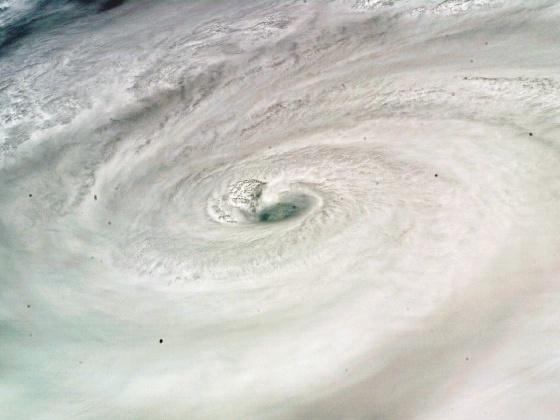
Section Branding
Header Content
'Active' Hurricane Season Begins June 1
Primary Content

Though it’s been 34 years since a hurricane made a direct landfall along Georgia’s coastline, emergency managers and forecasters are warning Georgians along the 100-mile coast and beyond not to become complacent.
The Atlantic hurricane season officially begins June 1. This week, May 26 through June 1, is Hurricane Preparedness Week across the nation.
The last hurricane to make direct landfall in Georgia was David back in 1979. But in 1994, Tropical Storm Alberto hit the Florida Panhandle and then lingered over west and central Georgia. The flooding that resulted and $750 million in damage made that storm one of the costliest in state history.
“That was a huge impact and it wasn’t even a hurricane. It was a tropical storm,” said Crystal Paulk-Buchanan, a spokeswoman for the Georgia Emergency Management Agency.
She said Tropical Storm Alberto illustrated that residents throughout Georgia need to be prepared for storms and the deluge they bring.
“2012 was the year of water. It was storm surge and inland flooding that did the vast amount of damage to the U.S. last year,” Paulk-Buchanan said. “That includes Tropical Storm Debby in June that caused extensive flooding in north Florida, the Florida Panhandle and even along the St. Mary’s River in south Georgia.
“Sandy wasn’t even designated a hurricane when it hit the northeast coast, but the storm surge and the inland flooding caused by that storm was so catastrophic that the impacted areas will be recovering for a very long time.”
Forecasters at the National Oceanic and Atmospheric Administration are predicting an above-average year of hurricane activity with 13 to 20 named storms and three to six hurricanes reaching Category 3 or higher. Those storms pack winds of 111 miles per hour or greater.
Storm activity peaks in the early September. But a storm could strike Georgia at any time, said meteorologist Marshall Shepherd.
“We will at some point see a landfalling storm again. So that’s why residents should be very diligent [and] should pay attention when we hear warnings about an active hurricane season in the Atlantic, because, at any given moment, depending on the meteorological setup, our coastline could be affected,” said Shepherd, director of the University of Georgia atmospheric sciences program and president of the American Meteorological Society.
Shepherd said even if Georgia is not hit directly on the coast, a storm that goes ashore in north Florida can cause significant storm surge and flooding in Georgia.
Paulk-Buchanan at GEMA said residents need to stay on top of the weather situation during hurricane season. She encouraged Georgians to sign up for alerts from local officials and get a NOAA weather radio.
The start of the season is also a good time to complete a emergency preparedness plan for you and your family, Paulk-Buchanan said, or to update your emergency supplies kit with a minimum of three days of food and water for each member of your family, including pets.
Tags: flooding, meteorologist, GEMA, Georgia Emergency Management Agency, hurricane season, Atlantic hurricane season, hurricane preparedness, hurricane, tropical storm, Tropical Storm Debby, superstorm sandy, crystal paulk-buchanan, marshall shepherd, american meteorological society, storm surge
Bottom Content

